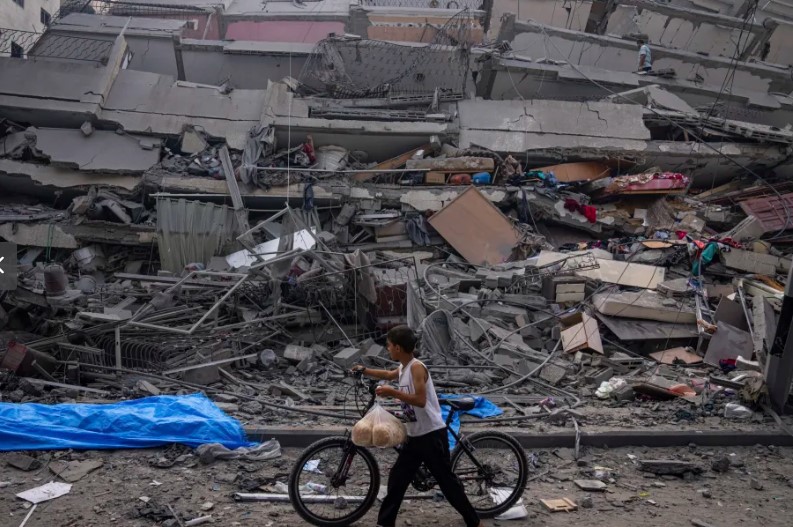On Sunday, Israeli soldiers engaged Hamas combatants in the streets of southern Israel and launched retaliation strikes that leveled buildings in Gaza, while in northern Israel a brief exchange of strikes with Lebanon’s Hezbollah militant group sparked fears of a wider conflict.
After an unprecedented surprise attack from Gaza, Hamas militants, backed by a barrage of thousands of rockets, breached Israel’s security barrier and rampaged through adjacent communities for more than 24 hours. At least 600 people have reportedly been killed in Israel, a staggering number the country has not seen in decades, and over 300 people have been killed in Gaza.
Women, children, and the elderly were among the captives returned to the coastal enclave of Gaza by the militants, who will likely attempt to trade them for thousands of Palestinian prisoners detained by Israel. Secretary of State Antony Blinken stated on CNN’s “State of the Union” that the United States is attempting to confirm allegations that multiple Americans were killed or are missing.
The high death toll, the number of captives, and the sluggish response to the attack all pointed to a significant intelligence failure and undermined the long-held belief that Israel has eyes and hearing everywhere in the small, densely populated territory it has controlled for decades.
Prime Minister Benjamin Netanyahu of Israel declared that his nation was at war and would exact a hefty price from its adversaries. His Security Cabinet officially declared war on the nation on Sunday, stating that the decision authorizes “significant military action.”
The implications of the announcement were not immediately comprehensi publicity about. Israel has conducted significant military campaigns in Lebanon and Gaza over the past four decades, portraying them as wars, but without a formal declaration.
Yohanan Plesner, director of the Israel Democracy Institute, a local think tank, stated that the decision is mainly symbolic, but “demonstrates that the government believes we are entering a more protracted, intense, and consequential period of war.”
An important issue was whether or not Israel would launch a ground assault into Gaza, a tactic that has historically led to increased casualties. Netanyahu declared that Hamas “will pay an unprecedented price.” However, he cautioned, “This war will take time.” It will be challenging.”
The violence on both parties exacted a staggering toll on the civilian population. Several Israeli media agencies, citing rescue service officials, reported that at least 600 people, including 44 soldiers, had been killed in Israel, while officials in Gaza reported that 313 people had been killed in the territory. On each side, approximately 2,000 individuals have been wounded. Israeli security forces have slain 400 militants and captured dozens more, according to an Israeli official.
In the midst of a haze of ambiguity regarding the fate of their loved ones, Israeli television broadcast a steady stream of reports from the relatives of captive or missing Israelis, who wept and pleaded for assistance. Residents in Gaza evacuated their homes near the border to avoid Israeli airstrikes, fleeing deeper into the territory after receiving Arabic-language warnings from the Israeli military.
According to the Interior Ministry, a police officer in neighboring Egypt shot and killed two Israeli vacationers and an Egyptian at a tourist site in Alexandria. Egypt and Israel made peace decades ago, but anti-Israel sentiment is prevalent in the country, particularly during Israeli-Palestinian conflicts.
Hezbollah, a fierce enemy of Israel sponsored by Iran and estimated to possess tens of thousands of rockets, was also threatened to be drawn into the conflict by the conflict along Israel’s northern border.
Sunday, Hezbollah launched dozens of rockets and shells at three Israeli positions in a disputed area along the border. In response, the Israeli military fired armed drones at Hezbollah positions. According to the nearby Marjayoun Hospital, broken glass on the Lebanese side mildly injured two children.
After the exchange, Israeli Rear Admiral Daniel Hagari told reporters that the situation at the northern frontier was calm. However, he stated that combat was still ongoing in the south.





